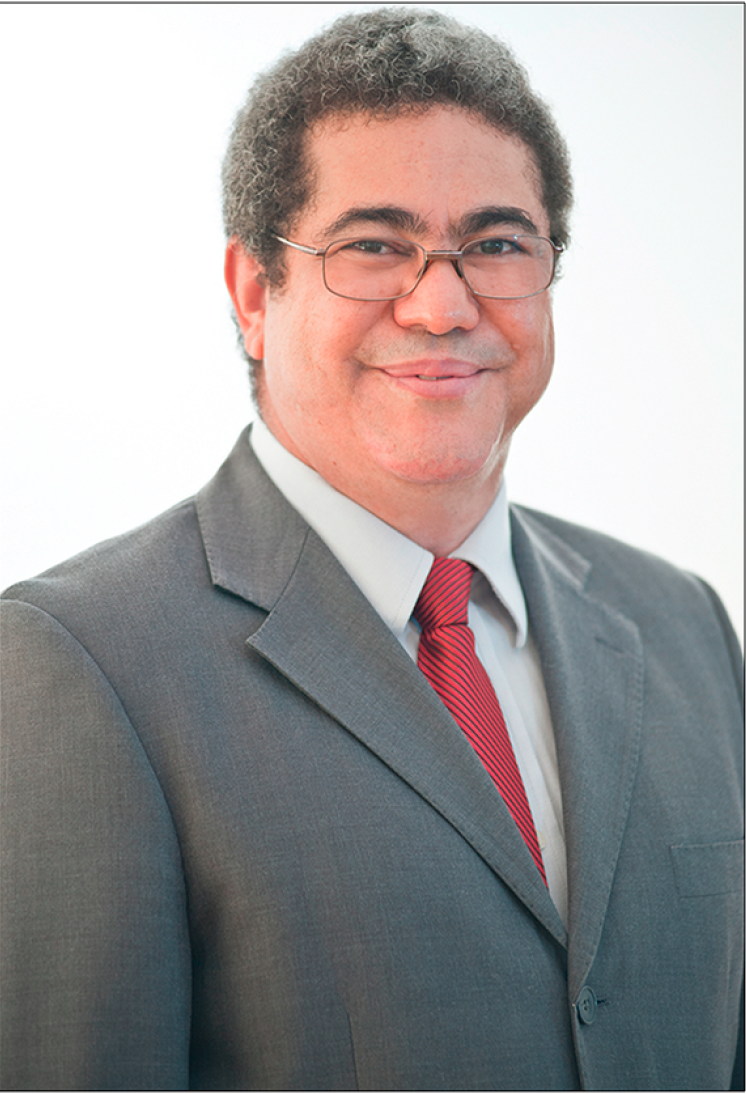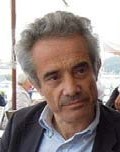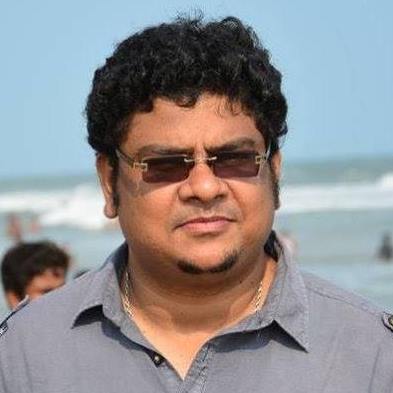Prof. Fernando Manuel Ferreira Lobo Pereira (University of Porto, Institute for Systems and Robotic Porto, Portugal)
Keynote: Optimal Control Problems Arising in Drone Missions for Disaster Search and Rescue Operations
A fast growing demand of Systems of Autonomous Robotic Vehicles is being generated by the need to address the transformational challenges human kind is facing. These span a wide range of areas covering all the facets of the sustainable evolution of human societies: management of natural resources to supply food, manufacturing production, health safety, impact mitigation and recovery from disaster (both natural and human-made), security and defence. Networks involving fixed nodes and heterogeneous – air, surface, and underwater – mobile platforms endowed with a wide diversity of sensors and actuation devices are required in order to get enough data to acquire proper situational awareness, and deploy a purpose-driven intervention in the sequel of decision-making process – possibly, including a deliberativ component – fed by the available pertinent data and a priori knowledge. SYSTEC – Research Center for Systems an Technologies (http://systec.fe.up.pt) of Faculty of Engineering of Porto University has, over the years, been devoting a very significant R&D effort to the advancement of theoretical research in systems and control, as well as technologies to design and build such systems.
In this talk, as a motivation, we will focus on some key optimal control problems arising in the development of drone systems to support search and rescue operations in the aftermath of disasters, such as earthquakes, floods, tsunamis, extremal weather events, among others. More precisely, we focus on issues arising in multiple drone systems to support communications and situational awareness for first responders in the aftermath of the event that triggered a disaster, in order to promote the agility and effectiveness of the response. This is of utmost importance to mitigate the impact of the destruction and, in particular, the loss of life. After describing two key operation scenarios, we point out challenges arising in communications and control, and outline a systems design framework leading to the formulation of the required multiple optimal motion control problems, most of which feature state constraints. Then, a Pontryagin maximum principle in the Gamkrelidze form is presented. Under certain regularity assumptions, its measure multiplier is continuous, and, thus, amenable to the formulation of an effective computational indirect method. The shooting algorithmic implementation of this method is easily parallelizable and, as such, adequate for state constrained optimal control problems with real-time constraints. Feedback control strategies to compensate for motion disturbances, on the one hand, and optimization over multiple concatenated modes of operations – often entailing different models – are obtained by embedding the procedure to solve the optimal control in a receding horizon framework of the model predictive control type.
BIO: Fernando Manuel Ferreira Lobo Pereira (http://paginas.fe.up.pt/~flp/) is a Full Professor at Porto University, Faculty of Engineering, Electrical and Computer Engineering Department (http://www.fe.up.pt), Director of the Institute for Systems and Robotic Porto, (https://www.isr.uc.pt/isr/), Scientific Coordinator of FCT R&D unit SYSTEC (http://systec.fe.up.pt).
Academic degrees, fields of study, awarding institutions, dates in reverse chronological order: Received the Habilitation (“Agregação”) title from Porto University in 1997; Received the PhD in Control Theory from Imperial College of Science and Technology, London University, in 1986; Graduated in Electrical Engineering, Automation and Control at the Faculty of Engineering of Porto University in 1981.
Main scientific and technical area of research: Control and Optimization Theories (Non-smooth Analysis, Dynamic Optimization, and Impulsive Control), Hybrid Systems, and Coordinated Control, and their application in the control of autonomous and/or networked systems arising mainly in multiple robotic vehicle systems. The main application areas are: oceanography, and environment monitoring and surveillance, as well as data gathering for scientific marine research.
Selected recent R&D projects:
EMSO-PT – European Multidisciplinary Seafloor and Water Column Observatory-Portugal, Ref. 22157, POCI – P2020 – FEDER, http://www.emso-eu.org, 2017 – 2020.
ENDURANCE – Sistema baseado em veículos autónomos para observação oceonográfica de longa duração, Ref. 017084, P2020 – 33/SI/2015, http://lsts.fe.up.pt/our-work/projects, 2017-2019
E-URready4os – Expended Underwater Robotics Ready for Oil Spill, Ref. 2016/PREP/21, ECHO – European Commission, http://www.upct.es/urready4os, 2017-2018
FIRE-RS – wildFIRE Remote Sensing, Ref. SOE1/P4/E0437, INTERREG – ERDF, 2016 – 2019
STRIDE – Smart Cyberphysical, Mathematical, Computation and Power Engineering Research for Disruptive Innovation in Production, Mobility, Health, and Ocean Systems and Technologies, Structured RDI Projects – N2020, 2016-2019
MARINFO: Integrated Platform for Marine Data Acquisition & Analysis, Structured RDI Projects – N2020, 2016-2019
TOCCATA – Theory, Applications, and Numeric Computation in Optimal Control, Ref. PTDC/EEI-AUT/2933/2014|16858, FCT, 2016 -2019
Society and Technical Committees membership: IEEE, SIAM, APCA, AMS, INFORMS, SPM, and OE, IFAC Technical Committee on Optimal Control.
Published more than 300 publications in peer-reviewed journals and conferences.
Dr. Swagatam Das (India Statistical Institute, Kolkata, India)
Keynote: Multi-modal, Noisy and Large-Scale Engineering Optimization with Differential Evolution – Some Recent Approaches and Future Challenges
Differential Evolution (DE) is arguably one of the most powerful stochastic optimization algorithms of current interest. Since its inception in 1995, DE has drawn the attention of many researchers all over the world resulting in a lot of variants of the basic algorithm with improved performance, especially on continuous parametric spaces. This talk will begin with a brief but comprehensive overview of the basic concepts related to DE, its algorithmic components and control parameters. It will subsequently discuss some of the significant algorithmic variants of DE for bound-constrained single-objective optimization for high-dimensional search spaces. The talk will then focus on some interesting DE variants with additional mechanisms like a distance-based selection, a clustering procedure and bi-objective formulations for solving multi-peak optimization problems where the objective is to locate all the global and local optima of a fitness landscape during one run of the algorithm. The talk will finally highlight a few open research problems in the related areas.
BIO: Swagatam Das is currently serving as an associate professor at the Electronics and Communication Sciences Unit of the Indian Statistical Institute, Kolkata, India. His research interests include machine learning and non-convex optimization. Dr. Das has published one research monograph, one edited volume, and more than 300 research articles in peer-reviewed journals and international conferences. He is the founding co-editor-in-chief of Swarm and Evolutionary Computation, an international journal from Elsevier. He has also served as or is serving as the associate editors of Pattern Recognition (Elsevier), IEEE Trans. on Systems, Man, and Cybernetics: Systems, IEEE Computational Intelligence Magazine, IEEE Access, Neurocomputing (Elsevier), Engineering Applications of Artificial Intelligence (Elsevier), and Information Sciences (Elsevier). He is an editorial board member of Applied Soft Computing (Elsevier) and Progress in Artificial Intelligence (Springer). He is also the founding Section Editor of Springer Nature Computer Science (SNCS) journal since 2020. Dr. Das has 19000+ Google Scholar citations and an H-index of 63 till date. He has acted as guest editors for special issues in journals like IEEE Transactions on Evolutionary Computation and IEEE Transactions on SMC, Part C. he has served as the organizing as well as program committee members of several reputed international conferences including IEEE CEC, WCCI, GECCO, AAAI, and ICML. He is the recipient of the 2012 Young Engineer Award from the Indian National Academy of Engineering (INAE). He is also the recipient of the 2015 Thomson Reuters Research Excellence India Citation Award as the highest cited researcher from India in Engineering and Computer Science category between 2010 to 2014.
https://www.isical.ac.in/~swagatam.das/

Prof. Mohammed Chadli (University Paris-Saclay, IBISC Lab-UEVE, France)
Keynote: Observer Design in Finite Frequency domain: Application to Fault Diagnosis
The talk will focus on the observers design in finite frequency domain. A filter is proposed in the finite-frequency domain to reduce the conservatism generated by those designed in the entire-frequency domain. In order to guarantee the best robustness to disturbances and sensitivity to faults, the developed filter combines the H_/H∞ performances. The multi-objective design is given in linear matrix inequality (LMI) terms. Illustrative example to validate the proposed the design technique is provided.
BIO: Mohammed Chadli (Senior Member’99, IEEE) received the MScEng (DEA) from the Engineering School INSA-Lyon (1999), the PhD thesis from the University of Lorraine (UL-CRAN) Nancy France in 2002 and his habilitation in 2011 at the University of Picardie Jules Verne (UPJV) Amiens, France. Since 2004, he was Associate Professor at the UPJV and currently Full Professor at the University Paris-Saclay, Univ Evry, IBISC Lab., France. He was a visiting professorship at the TUO-Ostrava (Czech Rep.), UiA (Norway), SMU-Shanghai (2014-2017) and NUAA-Nanjing (2018, 2019). Currently is a full professor at University Paris-Saclay, France.
Dr Chadli’s research interests include fuzzy/LPV and switched systems, singular systems, robust control, fault detection and isolation (FDI), fault tolerant control (FTC) via LMI, SOS and Lyapunov methods. On the application side he is mainly interested in automotive control and renewable energy. He is co-author of books and book chapters (Wiley, Springer, Hermes), and numerous articles published in international journals and conferences.
Dr. Chadli is a senior member of IEEE. He is also an Editor/Associate Editor/Editorial Board Member of several international journals, including the IEEE Transactions on Fuzzy Systems, the IEEE Transactions on Industrial Electronics, the IET Control Theory and Applications, the Franklin Institute Journal, Asian Journal of Control, Cogent Engineering,… and was a Guest Editor for Special Issues in international journals.
Prof. M. Chadli’s Google Scholar Page

Prof. Geraldo Nunes Silva (UNESP – Universidade Estadual Paulista, Brazil)
Keynote: Minimax control problem: necessary and sufficient conditions of optimality
The formulation of the minimax control problem is considered. We allow for parameter uncertainties in all functions involved: in the cost function, in the dynamical control system and in the equality and inequality constraints. Weak maximal principle for minimax optimal control problems with mixed state-control equality and inequality constraints, under the constraint qualification of Mangassarian-Fromovitz type are discussed. The optimality conditions under a full rank conditions type is derived, and it is shown that it is, as usual, a particular case of the Mangassarian-Fromovitz type condition case. It is also discussed Hamilton-Jacobi-Bellman type theory for minimax control problems. Illustrative examples are presented.
BIO: Geraldo Nunes Silva recieved the BSc in Mathematics from Universidade Federal de Uberlandia and PhD from Imperial College London. He is currently a Full Professor of Optimal Control at UNESP – Universidade Estadual Paulista and was Vice-Dean of the Institute de Biociências, Letras e Ciências Exatas of UNESP at Sao Jose do Rio Preto from June 2015 to May 2019. He is a former President of the Brazilian Society for Applied and Computational Mathematics (2009-2013) and runs a vigorous research program in Control Theory and Applied Mathematics in his home institution, having supervised a number of PhD and Master Students. His main contributions are on optimality conditios for control problems and stability and existence theries for control systems.

Prof. Askhat Diveev (Federal Research Center “Computer Science and Control” of Russian Academy of Sciences, RUDN University, Russia)
Keynote: Control Training
A new paradigm of the synthesis of control systems is considered – a control training. According to the new approach, the creation of a control system consists in constructing some flexible control system, for example, in the form of a control function, and then, when solving optimal control problems, these functions are refined according to the optimization criterion. It is proposed to use symbolic regression methods as flexible constructions for the control function. It is shown that the control training procedure corresponds to the neural network training process without a teacher. Examples of control training for a group of robots are given.
BIO: Askhat Diveev (born in 1954 in Magadan, USSR), Doctor of Technical Sciences, Professor. He graduated from the Bauman Moscow State Technical University (BMSTU) in 1980, in 1989 defended a Candidate thesis in BMSTU, in 2001 he became a Doctor of Technical Sciences in Dorodnitsyn Computing Center of the Russian Academy of Sciences, in 2009 he became a Professor. Main scientific results are following: a new method of symbolic regression for numerical solution of the control synthesis problem called the network operator method (2006), a method of small variations of the code of the basic solution for the optimal solution search in non-numerical space (2006), a theory of controllable networks for traffic flow control models based on network configuration change (2008), new methods of symbolic regression based on modifications of known methods of symbolic regression: variational genetic programming (2014), variational analytical programming (2015), binary variational genetic programming (2016), complete binary variational genetic programming (2017).


